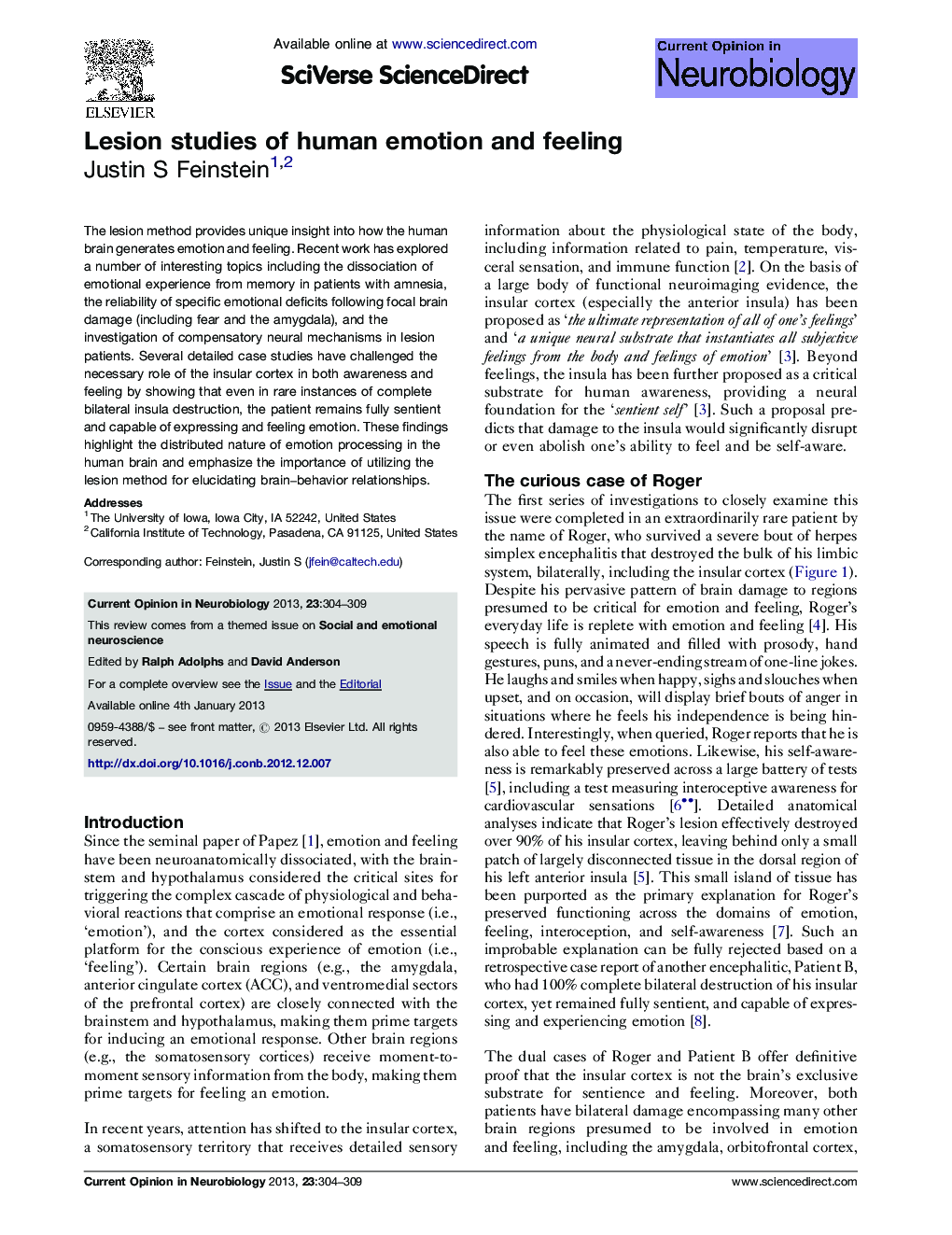| Article ID | Journal | Published Year | Pages | File Type |
|---|---|---|---|---|
| 6267160 | Current Opinion in Neurobiology | 2013 | 6 Pages |
The lesion method provides unique insight into how the human brain generates emotion and feeling. Recent work has explored a number of interesting topics including the dissociation of emotional experience from memory in patients with amnesia, the reliability of specific emotional deficits following focal brain damage (including fear and the amygdala), and the investigation of compensatory neural mechanisms in lesion patients. Several detailed case studies have challenged the necessary role of the insular cortex in both awareness and feeling by showing that even in rare instances of complete bilateral insula destruction, the patient remains fully sentient and capable of expressing and feeling emotion. These findings highlight the distributed nature of emotion processing in the human brain and emphasize the importance of utilizing the lesion method for elucidating brain-behavior relationships.
⺠Bilateral amygdala damage during development can lead to a loss of fear as an adult. ⺠Complete destruction of the insular cortex does not abolish emotional experience. ⺠The brainstem and somatosensory cortices may be critical for feeling emotion.
